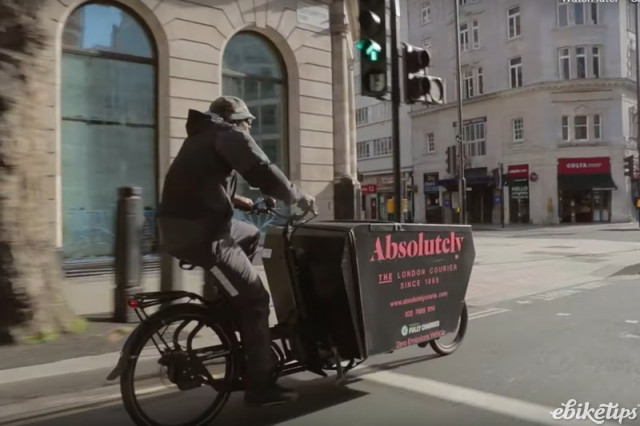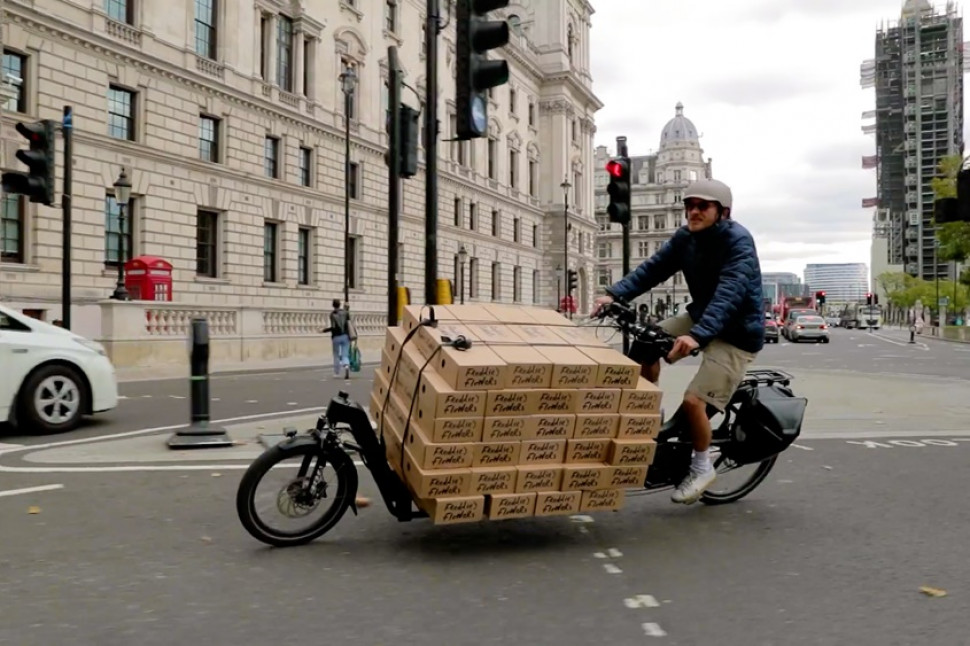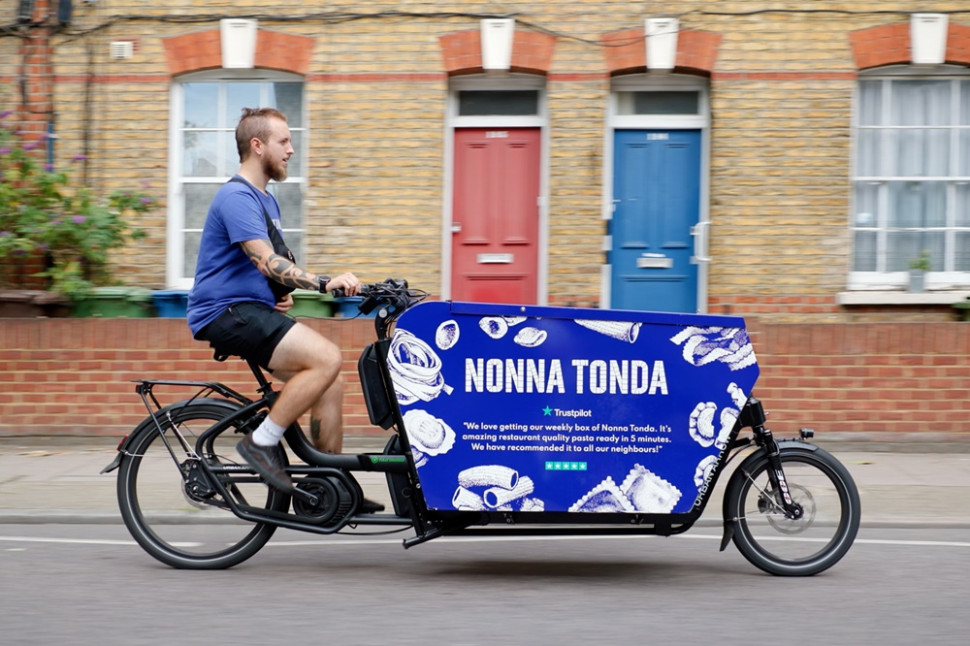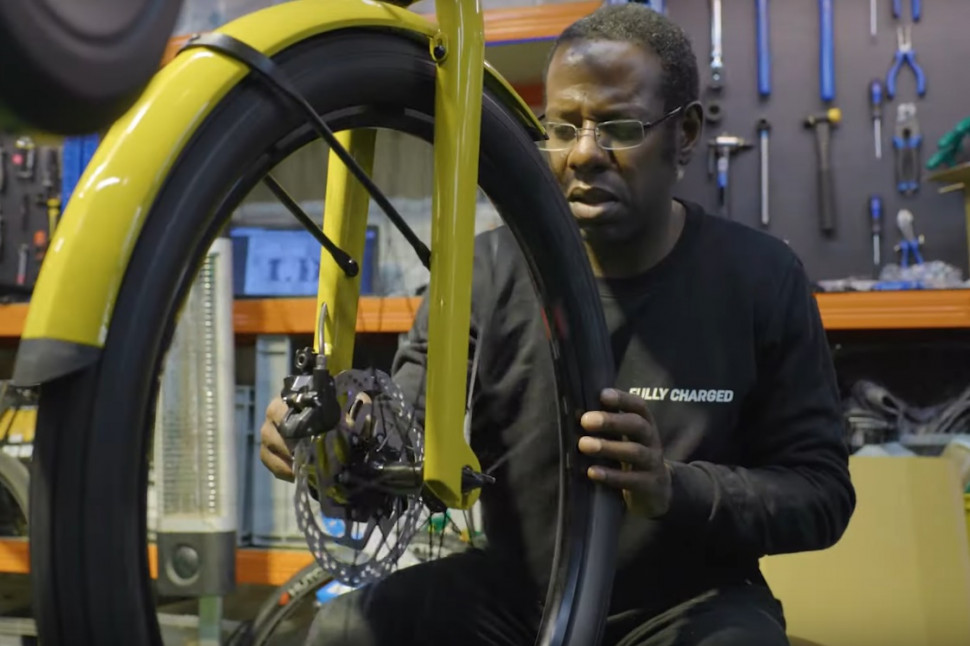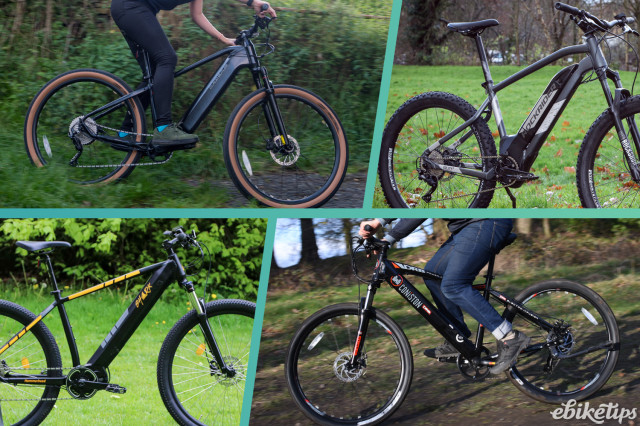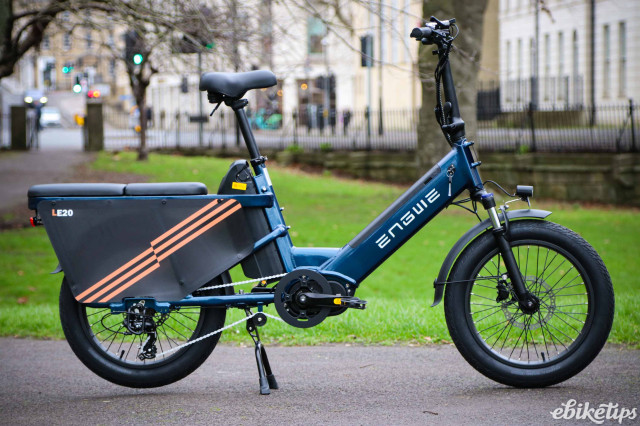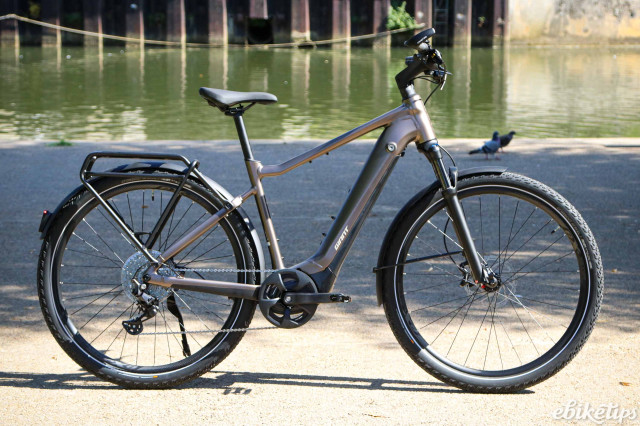An e-bike shop turned e-cargo bike service centre is helping businesses swap vans for e-cargo bikes, with free test rides and one-to-one consultations, to boost uptake of the Department for Tranpsort's eCargo Bike Grant.
The government has made £400,000 available for businesses and even high streets for e-cargo bikes, and Fully Charged, in London Bridge, says it is promoting the grant to customers - reaping business benefits through sales and maintenance of business fleets - because while the government is “doing their best to help,” marketing and promotion of the scheme is lacking.
A recent study found e-cargo bikes can deliver up to 60% faster than vans, dropping off an average 10 parcels an hour, compared to six for vans - while cutting carbon emissions by up to 90%.
Dan Parsons, of Fully Charged, said measures like low emission zones and improved cycling infrastructure are making vans a less attractive prospect, along with cost.
“The future is taking a different shape and e-cargo bikes are an alternative to using fossil fuels,” he told us, “and white van man is being pushed out of London.
“We are way behind Europe on e-cargo bike use - but we can catch up - and the government is doing their best to help. Our opinion is they aren't doing a very good job promoting or marketing [the grant].
“Our test rides for businesses campaign means businesses can contact us, have a one to one consultation, discuss business use cases, and then we invite them down for test rides, hold their hand through the grant application process and help them move forward as a business.”
The Government’s eCargo Bike Grant is a £400,000 pot for 40% of the cost of e-cargo bikes, up to £2,500 for two-wheeled models, and £4,500 for three-wheelers. Fully Charged claims a £7,585 Urban Arrow Cargo XL, with an aluminium box, can end up costing a business just £2,259, with the grant, VAT, and a ‘super tax deduction’, introduced in April 2021 for business machinery.
Fully Charged said during the 2019 £2m eCargo bike funding round, their team worked with “dozens of businesses… alongside a number of local authorities, to pair them with the best e-cargo bikes to suit various applications”, and the grant helped make the decision to switch even easier.
Parsons said: “[Businesses] all want the same package: someone looks after them, and educate them into buying the right bike. Most make the same mistake of buying too cheap and it's not suitable for business use - it needs to be reliable for commercial applications - they are then guided through the buying process and we can offer help with grant applications, and then through the application and then more importantly, once they are on the bikes they become a client."
He said while fleet managers have a job to convince CFOs to buy their first cargo bike, once they see how efficient they are, one can quickly turn into several. Fully Charged recently moved to a 10,000m2 service centre, four times the size of their previous space, in railway arches near London Bridge, because 20% of their business is now selling and servicing business e-cargo bikes and they take up a lot of space.
Tom de Wilton, of Oxwash, an Oxford-based laundry company that collects and returns laundry by e-cargo bike, said the company chose pedal power as e-cargo bike technology improved, with measures like low emissions zones making cargo bikes more attractive. He said more money needs to be available, to support more businesses to switch, and compared the huge £582m electric vehicle (EV) subsidy - which includes commercial vans - to the £400,000 for e-cargo bikes.
> UK laundry firm to use e-cargo bikes within London ultra-low emission zone
Ben Knowles, from Pedal Me, which uses cargo bikes to deliver goods, and ferry customers, says purchasing e-cargo bikes is a fraction of his business operating costs and he believes purchase subsidies risk wasting grant money with businesses buying the wrong cargo bikes, without understanding how they work, and that many then fall into disuse.
Rachel Swiatek, Programme Manager at the Energy Saving Trust which manages the grant scheme, says: “E-cargo bikes are an attractive low carbon transport option and are growing in popularity for local deliveries and business operations. The eCargo Bike Grant Fund will provide businesses with a transformative opportunity to make lasting changes to how they transport goods.
“With more deliveries being made to our homes than ever before, last mile delivery is an important area for consideration in our journey to reduce transport emissions to net zero by 2050. We anticipate wider uptake in the longer term of these light vehicles, supported by the eCargo Bike Grant Fund.“
